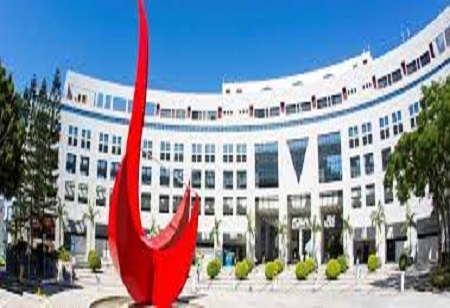In a plan to draw more talent to the city, Hong Kong's publicly supported institutions will be permitted to quadruple the number of non-local undergraduates who are newly enrolled in the 2024–25 academic year to around 6,000, the Post has discovered. Based on a source from colleges and universities on Tuesday, the idea, which has been presented to education officials, would not decrease the number of subsidized spaces for Hongkongers because non-local students would pay tuition costs in full. According to the source, the plan put out by the University Grants Committee (UGC) would increase the cap on non-local admissions to undergraduate programs from the equivalent of 20 percent of authorized subsidized spots to 40 percent. The UGC distributes government funding to institutes of higher learning. If there were 15,000 publicly financed first-year degree spots available, the number of international students entering would increase from about 3,000 to 6,000.
The source stated, “The initiative is against the backdrop of the [government] blueprint of turning Hong Kong into a regional education hub and the policy of attracting talent globally”. While local students pay Hong Kong dollars 42,100 in tuition each year, non-local undergraduates are charged between Hong Kong dollars 140,000 and Hong Kong dollars 182,000 at the eight publicly supported institutions. Despite the demand for non-local postgraduate admission spots is far smaller than for undergraduate programs, similar approaches have been proposed. In comparison to 2,507 Hongkongers, about 100 non-local students attended these courses throughout this academic year. The topic of boosting non-local student spaces was on the committee's agenda because it aligned with the strategy to draw talent, UGC Chairman Tim Lui Tim-Leung told the Post. “This topic is being seriously considered by the university sector”, told Lui and opted not to go into further detail. According to the source, several colleges have already reached their 20 percent non-local student threshold, and others have even significantly overenrolled with authorization.
The percentage of non-local undergraduate students at the University of Hong Kong (HKU) and the University of Science and Technology (HKUST) reached 23.7 percent and 22.4 percent, respectively, in 2021–22, while the average across the eight institutions was 18 percent, according to the most recent government statistics. The concept, according to the source, has been discussed with universities and might be unveiled in Chief Executive John Lee Ka-chiu's policy address in October.
According to a spokesperson for the Education Bureau, it is government policy to transform Hong Kong into a center for regional education through initiatives including the enrollment of non-native students in postsecondary institutions. “We review the relevant data from time to time and consider appropriate measures to further our policy objectives as necessary”, she said.
The percentage of non-local students last increased from 10 to 20 percent in 2008, as stated in the policy speech given in 2007 by the then-CEO Donald Tsang Yam-Kuen. The majority of international students attending publicly sponsored colleges are from the People's Republic of China. In the current academic year, 68 percent, or 9,693 students, came from the mainland, with the remaining students coming from foreign countries, according to UGC records. A global league chart, the Times Higher Education Rankings 2023, underlined the rise in mainland students enrolling in Hong Kong universities. It mentioned a rise in mainland students attending Hong Kong's institutions without elaborating on the effects of this rise. "Students from the mainland increased by 9 percent annually in Hong Kong in 2021–22", it stated.
A paper submitted to the Legislative Council earlier revealed that an additional 8,500 dorm spaces at four publicly funded colleges would be finished in 2024 or after. The government views the lack of hostel spaces as a major obstacle for institutions to admit more non-local students over the years. The legislator and associate vice-president of Ling Nan University, Professor Lau Chi-pang, asserted that Hong Kong's educational institutions had enough space to accept more foreign students. He claimed he did not see a problem if mainland students used the majority of the extra spaces. “You can take a look at universities in the United States and Europe, their non-local students are also dominated by mainland students. It is a global trend”, he said.
The other publicly financed institutions, in addition to HKU, HKUST, and Lingnan, are Baptist University, City University, Chinese University, City University, Polytechnic University, and Education University of Hong Kong.

